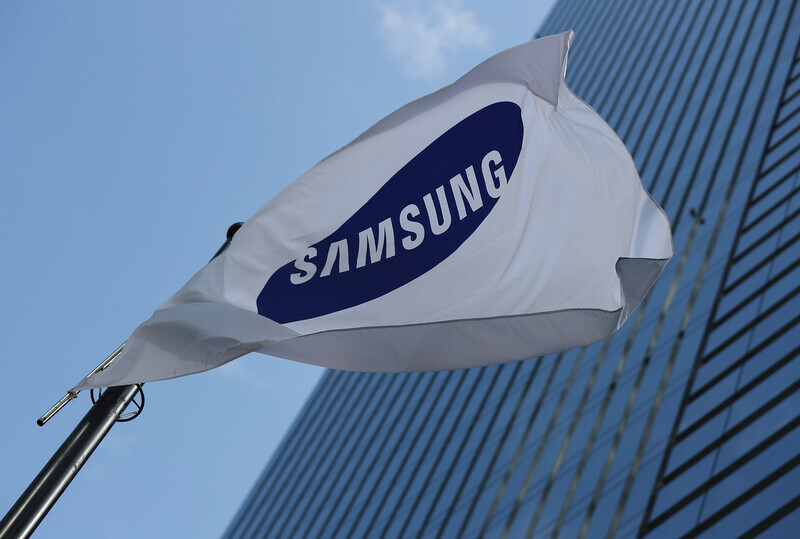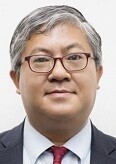hankyoreh
Links to other country sites 다른 나라 사이트 링크
[Column] The dismaying economics of the Republic of Samsung

Letting chaebol leaders off the hook for illegal behavior undermines S. Korea’s economic development
The panel of outside experts that review investigations being conducted by South Korea’s public prosecutors was set up to counterbalance the prosecutors’ monopoly on indictment, which can lead to excessive investigations and circle-the-wagons behavior. Last week, a panel of members appointed from “all areas of society, including law, academia, the press, civic groups, and culture and the arts” (under Article 4 of the Code of Operations) advised the prosecutors to halt their investigation into Samsung Electronics Lee Jae-yong in connection with allegations about his inheritance of management control of the Samsung Group and to not file charges against him.
The investigative review panel was set up to provide relief to the marginalized, but is Lee marginalized? Yang Chang-su, chair of the panel, recused himself from the deliberations on the grounds that he’s a friend of Choi Gee-sung, former director of Samsung’s Future Strategy Office. But while serving on the Supreme Court in 2009, Yang acquitted Samsung management on charges of breach of trust in the Samsung Everland convertible bonds case. This past month, Yang also wrote a column in defense of Lee. Kim Ji-hyeong, another former Supreme Court justice who supported acquittal, is currently the chair of the Samsung legal compliance oversight committee, which is part of the court’s attempt to let Lee off easy. Samsung’s legal affairs are in the hands of Choi Jae-gyeong, a former presidential senior secretary for civil affairs who reportedly has the ear of Prosecutor-General Yoon Seok-yeol. Lee’s legal team includes Han Seung, former head of the Jeonju District Court, who reportedly commands the highest premium as a former jurist in the legal profession. These former judges have come together to exploit a system, nominally designed to defend the marginalized, on Lee Jae-yong’s behalf.
The charges of price-fixing at Samsung C&T and fraudulent accounting at Samsung Biologics are part of a complicated investigation whose record runs for 200,000 pages; the written indictment alone runs for more than 150 pages. This isn’t the kind of case that members from “various areas of society” can comprehend and reach a decision about in a few hours. The panel’s recommendation ultimately appears to have been influenced by a widespread sense that Lee should be given “a chance to focus on the company and help it overcome the crisis,” to borrow the language of his advocates at Samsung.
Stocks have usually gone up when chaebol leaders were put in jailDoes the detention of a chaebol owner place the national economy in crisis? There aren’t any grounds for thinking so. When owners of the Hanwha, SK, CJ, and Taekwang groups were put in jail in the past — and even when Lee himself was detained a few years ago — these companies’ facility investment, net earnings, and stock prices actually went up. Public fears about what might happen if the prosecutors disregard the panel’s recommendation are baseless. Indeed, if prosecutors follow the panel’s recommendation, they will give a free pass to the suspects of major corporate crimes, who can exploit public sentiment to sway the decisions of non-experts. That’s why the prosecutors should make the indictment without hesitating.
Everyone knows that Samsung is a major driver of the Korean economy, but the irregularities and illegalities that occurred during Lee’s inheritance of control over the Samsung group undermine South Korea’s foundation as a capitalist country. Numerous company executives and experts became lawbreakers, violating corporate ethics. This created disorder in the capital markets and degraded the transparency of accounting. When I ask the elites at Samsung why such measures were necessary, their answer is that management rights can’t be passed down if inheritance taxes are paid.
That requires an explanation of the Korean understanding of management rights, a concept truly foreign to non-Korean scholars. They represent a unique power that goes beyond business, the power to neutralize the corporate governance of the modern joint-stock company and turn a listed company into a personal piggy bank and a private army. This is a power that’s exerted over stakeholders and society itself. This power gives the chaebol owner an anachronistic right to rule without taking responsibility for his or her mistakes. It’s the power to use a company not as a social instrument for pursuing the public good but as a forum for satisfying private desires and ruling over others.
The necessary balance of authority and responsibilityCapitalistic governance demands a balance between authority and responsibility, between risk and reward. What is justice under capitalism? Nassim Taleb describes it as ergodicity – the idea that even wealthy people in the top 1% face the risk of falling from their current position as a result of their decisions. Therefore, the assumption that a company belongs to its chairperson and that management rights can be passed down through the DNA are outdated and anti-capitalist. If the Korean public turns a blind eye to injustice merely because Samsung should be challenged when it’s doing such a good job, we will regress into the caste society of the past.
While teaching economics, I wish I could encourage my students to become talented individuals who are fiercely innovative, while maintaining ethical standards, and who take control of companies to drive the economic growth of the Republic of Korea. But as a business professor in the Republic of Samsung in 2020, I shamefully have to tell them that the formula for success is caution at the workplace, a knack for office politics, and swift admittance into the clique that orbits the group leadership.
As part of his economic responsibilities, the president has met Lee, a suspect in a criminal investigation, more than 10 times. Economic matters must be kept separate from justice. Allowing criminal suspects to sidestep prosecutions by exploiting the opaque procedure of a review panel erodes discipline in our country and the order of our capitalistic economy.

If the majority of the public want Lee to be treated leniently after being found guilty, the president always has the option of taking on the political responsibility for pardoning him. We should take the high road, no matter how difficult that may be.
By Lee Han-sang, professor at Korea University Business School
Please direct comments or questions to [english@hani.co.kr]
Editorial・opinion
![[Editorial] Yoon must halt procurement of SM-3 interceptor missiles [Editorial] Yoon must halt procurement of SM-3 interceptor missiles](https://flexible.img.hani.co.kr/flexible/normal/500/300/imgdb/child/2024/0501/17145495551605_1717145495195344.jpg) [Editorial] Yoon must halt procurement of SM-3 interceptor missiles
[Editorial] Yoon must halt procurement of SM-3 interceptor missiles![[Guest essay] Maybe Korea’s rapid population decline is an opportunity, not a crisis [Guest essay] Maybe Korea’s rapid population decline is an opportunity, not a crisis](https://flexible.img.hani.co.kr/flexible/normal/500/300/imgdb/original/2024/0430/9417144634983596.jpg) [Guest essay] Maybe Korea’s rapid population decline is an opportunity, not a crisis
[Guest essay] Maybe Korea’s rapid population decline is an opportunity, not a crisis- [Column] Can Yoon steer diplomacy with Russia, China back on track?
- [Column] Season 2 of special prosecutor probe may be coming to Korea soon
- [Column] Park Geun-hye déjà vu in Yoon Suk-yeol
- [Editorial] New weight of N. Korea’s nuclear threats makes dialogue all the more urgent
- [Guest essay] The real reason Korea’s new right wants to dub Rhee a founding father
- [Column] ‘Choson’: Is it time we start referring to N. Korea in its own terms?
- [Editorial] Japan’s rewriting of history with Korea has gone too far
- [Column] The president’s questionable capacity for dialogue
Most viewed articles
- 1Months and months of overdue wages are pushing migrant workers in Korea into debt
- 2Trump asks why US would defend Korea, hints at hiking Seoul’s defense cost burden
- 3[Editorial] Yoon must halt procurement of SM-3 interceptor missiles
- 4At heart of West’s handwringing over Chinese ‘overcapacity,’ a battle to lead key future industries
- 5[Guest essay] Maybe Korea’s rapid population decline is an opportunity, not a crisis
- 6Fruitless Yoon-Lee summit inflames partisan tensions in Korea
- 7First meeting between Yoon, Lee in 2 years ends without compromise or agreement
- 8Under conservative chief, Korea’s TRC brands teenage wartime massacre victims as traitors
- 9Dermatology, plastic surgery drove record medical tourism to Korea in 2023
- 10[Column] Park Geun-hye déjà vu in Yoon Suk-yeol